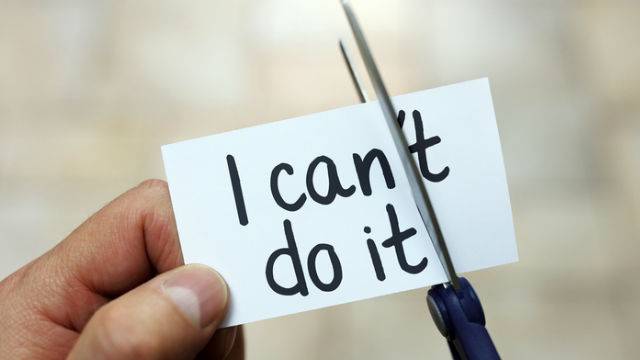What Keeps Social Anxiety Going?
 Do you feel self-conscious or anxious in social situations? Does your shyness and anxiety prevent you from engaging with others at work or in social settings? Do you spend a great deal of time worrying about what others think about you? Do you dislike being the center of attention because you think everyone will notice how anxious and nervous you are? Do you find yourself not contributing to conversations because you feel you don’t have anything interesting to contribute and fear that others will think you are uninteresting? These are just a few examples of the fears that people with social anxiety face.
Do you feel self-conscious or anxious in social situations? Does your shyness and anxiety prevent you from engaging with others at work or in social settings? Do you spend a great deal of time worrying about what others think about you? Do you dislike being the center of attention because you think everyone will notice how anxious and nervous you are? Do you find yourself not contributing to conversations because you feel you don’t have anything interesting to contribute and fear that others will think you are uninteresting? These are just a few examples of the fears that people with social anxiety face.
Social anxiety is a type of anxiety that occurs mostly in social settings and it is the 3rd most common psychological disorder in the United States. Social anxiety is said to affect 15 million people in the U.S. every year. Social anxiety disorder is a worldwide disorder and affects people of all ages and cultures. Even though social anxiety is very common, it is not well understood by the public or medical and mental health professionals, which leads to individuals suffering from social anxiety being misdiagnosed a great deal of the time. Often, those with social anxiety disorder are incorrectly diagnosed with depression, panic disorder or personality disorder. Unfortunately, without proper treatment, social anxiety tends to worsen over the life span. Social anxiety often co-occurs with other mental health issues such as depression as well as drug and alcohol use.
Social anxiety symptoms can range from mild to severe. When symptoms are mild, people may experience a lifelong pattern of shyness, coupled with mild anxiety. In the middle range, a person’s anxiety may be centered on social situations such as attending office parties or speaking in public. In the most severe range, a person may experience intense anxiety and avoid most social situations.
So what keeps social anxiety going?
Thoughts. Certain thoughts tend to surface whenever a social anxious person faces a social situation. These self-critical thoughts are often automatic and can go unnoticed but they tend to make a person feel very anxious. These include:
- rules for yourself – “I must always appear to have it all together”
- beliefs about yourself – “I am an inadequate person”
- predictions about what will happen – “If I start talking to that group of people, they will all see how inadequate I really am”
Engaging in safety behaviors. Often, people with social anxiety do certain things to make oneself feel more in control. This includes:
- avoiding eye contact
- drinking alcohol
- keeping hands hidden or holding on to something so no one can see your hand shaking
- looking at your cell phone
- rehearsing sentences in your mind
- practicing breathing techniques
Anticipatory anxiety. Spending a great deal of time thinking about a social situation before it happens and making negative predictions of what will happen.
Avoiding the situation. Although avoiding the situation does keep anxiety at bay temporarily, it actually reinforces the belief that in order to feel okay, you have to avoid potentially scary situations. Avoidance keeps social anxiety going and prevents the person from becoming more comfortable in the social situation and the longer a situation or event is avoided, the more terrifying it becomes.
Post-event processing. Post-event processing occurs when a person ruminates, reviews and analyzes the social encounter that just took place. During this “post mortem” of the event the person focuses on the negative aspects of the social situation, which causes the person to re-experience negative feelings and anxiety. For example, the person may think:
- “I must have looked really anxious when I was talking to that girl”
- “Everyone looked really bored when I was giving my presentation”
- “I know everyone saw me blush”
The thoughts and behaviors that keep social anxiety going are addressed and overcome with Cognitive Behavioral Therapy (CBT). At GroundWork Counseling in Orlando, we use empirically validated CBT techniques that teach you to push yourself outside of your comfort zone so that you can let go of some of your negative beliefs and fears and begin to pursue goals that are important to you. These goals can include feeling more confident, meeting new people, dating, pursuing a promotion and becoming more assertive.
Speak With An Orlando Counselor Now
407-378-3000





